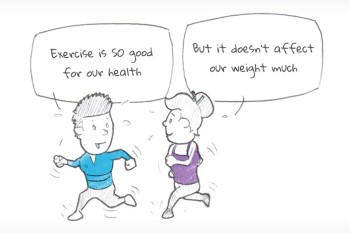
How does exercise affect metabolism?
Exercise has many effects on the metabolism, including changing the fuel being used and altering metabolic pathways to make exercise easier on the next occasion.
Everything you wanted to know about fasting, but were afraid to ask.

Exercise has many effects on the metabolism, including changing the fuel being used and altering metabolic pathways to make exercise easier on the next occasion.

The constant availability of high sugar, high fat food is just one of the factors driving the obesity crisis: we delve deeper.
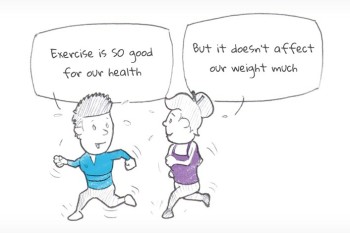
Unless they are really trying, most people maintain a fairly stable weight, gaining or losing weight very gradually. How does the body regulate our weight?

A complex system of hormones is constantly adjusting how much fat and glucose is being stored or used by the body according to whether we have eaten or are fasting.
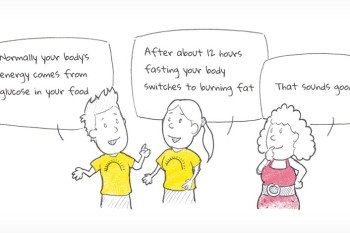
Our bodies are able to use our fat stores to supply energy during fasting. This article explains how it works.
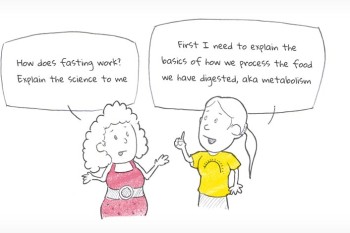
Our bodies are able to make the most of the food we eat by storing any excess calories in the form of fat which we can call on during fasting. This article explains how it works.

You have been following your intermittent fasting diet with no problems but now you feel constantly hungry – it could be a sign that you have been over-stressing your body.

If you are experiencing hunger problems, severe stress, or an acute illness it might be a good idea to take a break from intermittent fasting.

Some stress is good for our bodies but too much is harmful. If you are very stressed, fasting might not be a good idea.

If you’re not losing weight despite keeping to your fasting plans, maybe there’s a problem with your eating days.
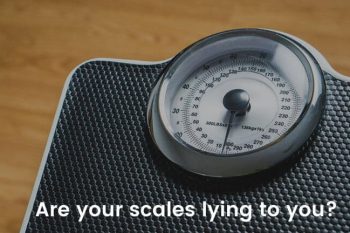
When we say we want to lose weight, we mean we want to lose fat, but the scales don’t tell us how much fat we’ve lost.

Are you frustrated that despite your efforts you are not losing weight? We can help you understand the problem and how to fix it.

As we lose weight, our metabolism slows slightly, it takes less energy to run our bodies and food becomes more appetising. Learn how weight loss affects our metabolism.
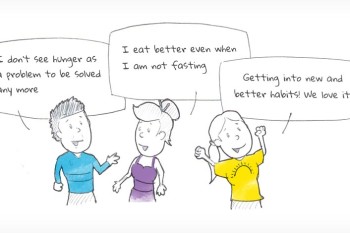
Learning to cope with feelings of hunger is empowering, and helps to break unhealthy relationships with food.

Fasting stimulates the body’s repair mechanisms making cancer cells less likely to develop. Fasting also deprives cancer cells from the glucose they need to live on.
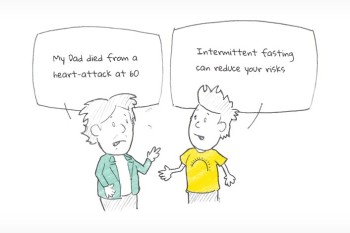
Intermittent fasting has been found to improve many of the risk factors for heart disease and other diseases of the circulation.
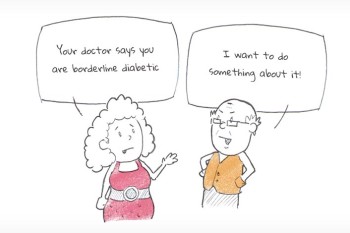
In diabetes your body cannot cope properly with the carbohydrates and sugars you eat. The disease process starts decades before you get symptoms. Intermittent fasting improves your body’s glucose metabolism.
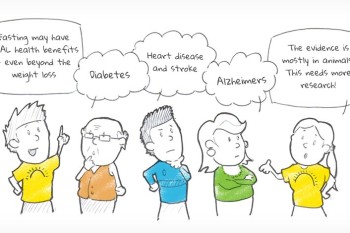
There is encouraging evidence that changes in your body created by fasting can reduce your risks of developing diseases including diabetes, strokes, heart disease and cancers.

What time should you eat on a fast day? What should you eat? Does it matter what you eat on non-fast days? Learn from the experience of thousands of people who’ve found what works best.

Jumping on the weighing scales once a week might seem like the obvious choice for monitoring your weight loss progress, but this is not the only method, nor even the best.
Be healthier. Lose weight. Eat the foods you love, most of the time.

LEARN ABOUT FASTING
We've got loads of info about intermittent fasting, written in a way
which is easy to understand. Whether you're wondering about side effects or why the scales aren't budging, we've got all you need to know.
 ASK QUESTIONS & GET SUPPORT
ASK QUESTIONS & GET SUPPORT FREE 5:2 DIET PROGRESS TRACKER & BLOG
FREE 5:2 DIET PROGRESS TRACKER & BLOG